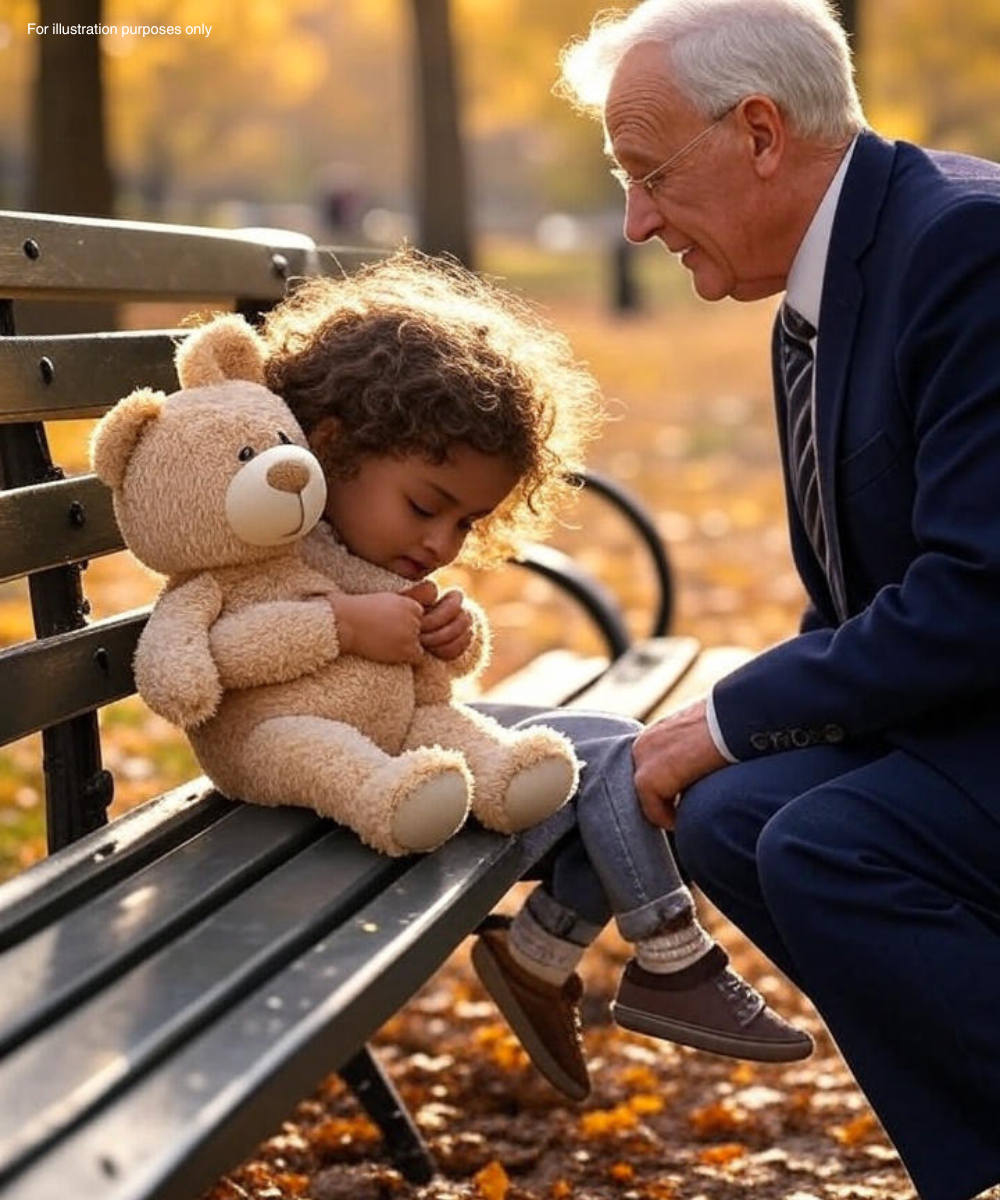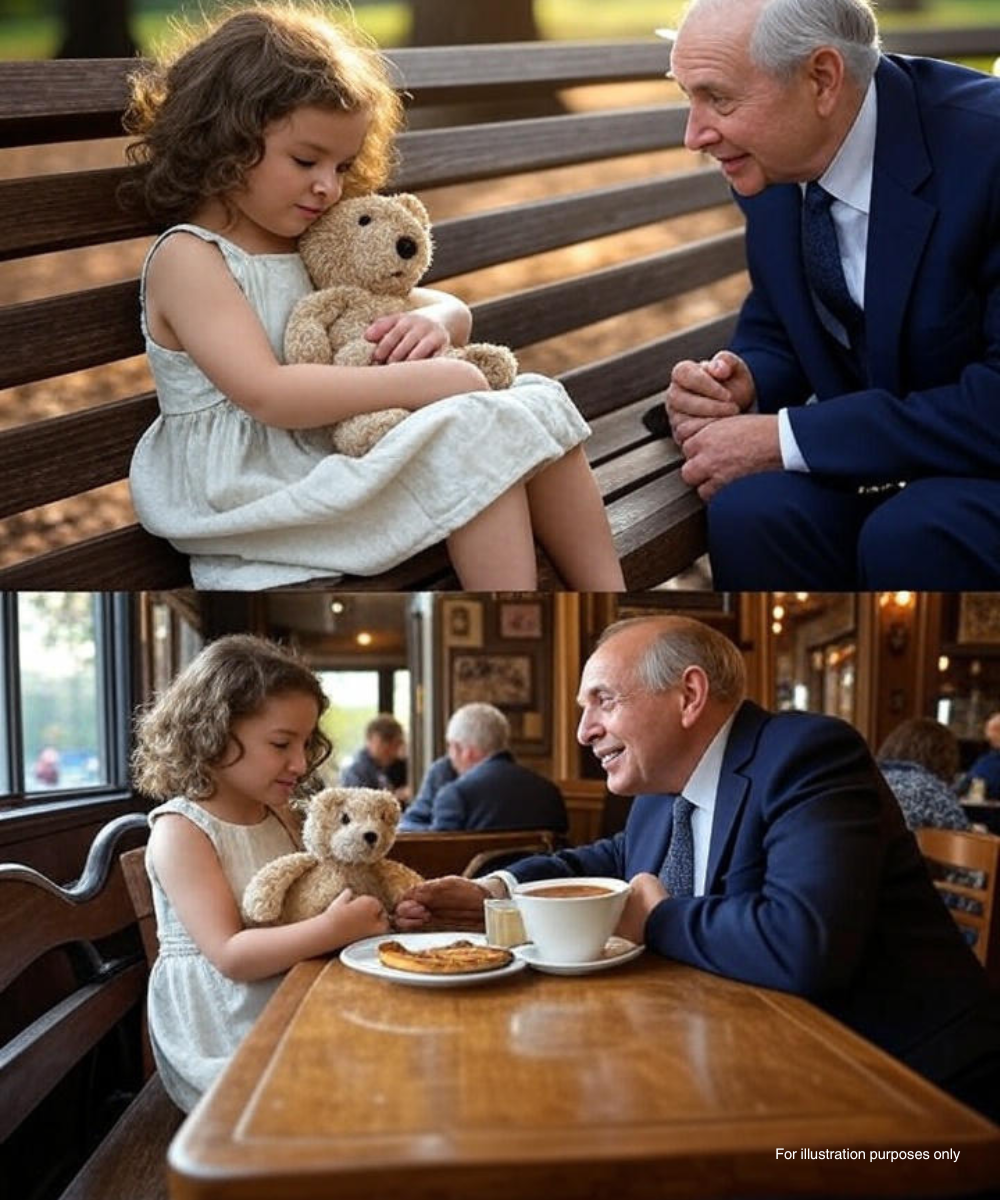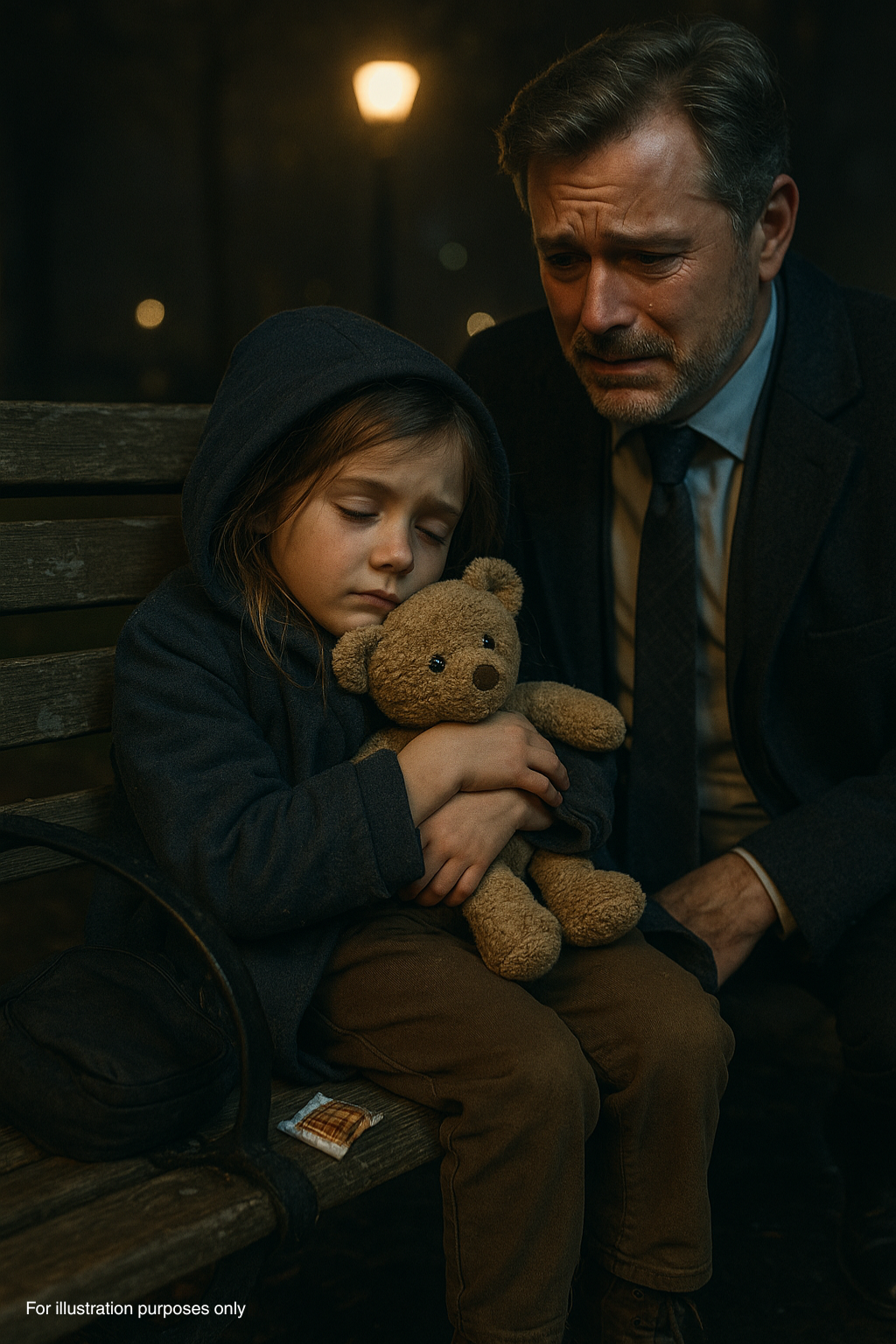She Slept on a Park Bench Every Night with Her Teddy Bear — Until One Man Asked Why
Every evening, she curled up on the same bench. No blanket. No pillow. Just a threadbare coat, a battered teddy bear… and the cold, unfeeling night.
Her name was Emily, though no one ever asked.
Until one night, someone finally did.

It began like any other evening for Charles D. Whitmore—CEO, investor, billionaire. The kind of man whose shoes alone cost more than some people’s monthly rent. He never walked home. But that night, after a long board meeting and a suffocating silence in his penthouse, he wandered through Central Park.
The city buzzed beyond the trees, but here, under the lamplight, time slowed.
That’s when he saw her.
A small figure curled on a wooden bench, clutching a faded teddy bear. Her shoes didn’t match. Her fingers were red with cold. She couldn’t have been more than eight years old.
He stopped. Frowned. And slowly approached.
“Hey there…” he said gently. “Are you okay?”
The little girl didn’t open her eyes. But she whispered, barely audible:
“I’m not stealing your spot. I can move.”
Those seven words hit Charles like a punch to the chest.
He sat down at the far end of the bench. Quiet. Still.
Minutes passed.
Then she turned her head. “You’re wearing a rich man’s watch.”
He smiled faintly. “That obvious?”
She nodded. “Most rich people don’t talk to me.”
“Why not?”
“They don’t see me,” she said. “Or maybe they try not to.”
Charles wasn’t sure why he stayed. Maybe it was her calm honesty. Maybe it was the way she hugged her teddy like it was her entire world.
He asked, “Where’s your family, Emily?”
A pause.
“Gone.”
He blinked. “Gone?”
“My mom got sick. Then she never woke up. My dad left before I can remember. I stayed with my aunt for a while… but she said I was too much.”
Charles looked at the streetlamp above. Its glow barely reached the bench.
“I tried the shelters,” Emily added. “But they’re full. Or loud. Or… scary.”
She glanced down at her bear. “This bench is quiet. And Buttons doesn’t mind the cold.”
Buttons. The bear with the missing eye and pen-drawn flowers on his bowtie.
Charles swallowed hard. He hadn’t cried since his wife passed in her sleep five years earlier.
But this child…
He cleared his throat. “Emily… would you come with me? Just for a warm meal.”
She hesitated.
“I’m not like other people,” she whispered. “They say nice things. Then take bad things.”
Charles knelt beside her.
“I swear on my life,” he said, “I won’t hurt you. Just dinner. Nothing more unless you say so.”
A long moment passed.
Then—she nodded.

At a quiet corner café, Emily sipped hot cocoa and savored grilled cheese like it was treasure. She didn’t talk much. But her eyes softened with each bite.
Charles didn’t ask about the past. Instead, they talked about clouds. Storybooks. And why Buttons had two names (apparently, he used to be called “Sir Fluffington”).
When she finished eating, she whispered, “Do I have to go back now?”
Charles blinked.
“No. You don’t.”
That night, he made calls. Hired a private caregiver. Prepared a guest room in his townhouse with soft blankets and lavender spray.
Emily fell asleep in the backseat, her arms around Buttons.
Charles sat outside her door for hours, staring at nothing.
In the morning, Emily woke to the smell of maple syrup.
“Hope you’re hungry,” Charles smiled, placing pancakes in front of her.
She stared. “This is real?”
“As real as Buttons.”
Days passed. Then weeks.
Charles adjusted his life. Skipped meetings. Cleared his calendar.
He bought her books. Mittens with tiny hearts. A pink backpack she never took off.
But more than that… he gave her space. Safety. Stillness.
And slowly—she laughed again.
One evening, watching cartoons, Emily asked, “Mr. Whitmore… do you miss someone too?”
He nodded. “My wife, Hannah. She would’ve loved you.”
Emily leaned her head against his arm. “I’m glad you found me.”
He whispered, “I didn’t find you, Emily. You found me.”

The adoption process wasn’t easy.
The caseworker was skeptical. “Why this child?”
Charles answered, “Because she doesn’t need charity. She needs a father.”
Three months later, in a small courtroom, Emily wore a blue dress and clutched Buttons as the judge asked if she wanted Charles to become her legal guardian.
“I don’t want him to be just my guardian,” she said. “I want him to be my forever dad.”
That night, Charles had a small plaque installed on the park bench where they met.
It read:
Reserved for Emily & Buttons
Where Hope Found Us
Years later, Emily stood on a graduation stage, valedictorian sash draped over her shoulders.
Charles—now mostly retired—sat front row, camera in hand, shouting louder than anyone.
In her speech, Emily paused and pointed at him.
“When I had nothing, I had one man who didn’t walk past me.
He didn’t ask what I could offer.
He just saw me.And he stayed.”
The world called it a miracle.
The headlines read:
“Billionaire Adopts Homeless Girl Found Sleeping in Park.”
But Charles always corrected them.
“It wasn’t charity.
It was love.
And the smallest girl taught me how to be the biggest kind of man.”
